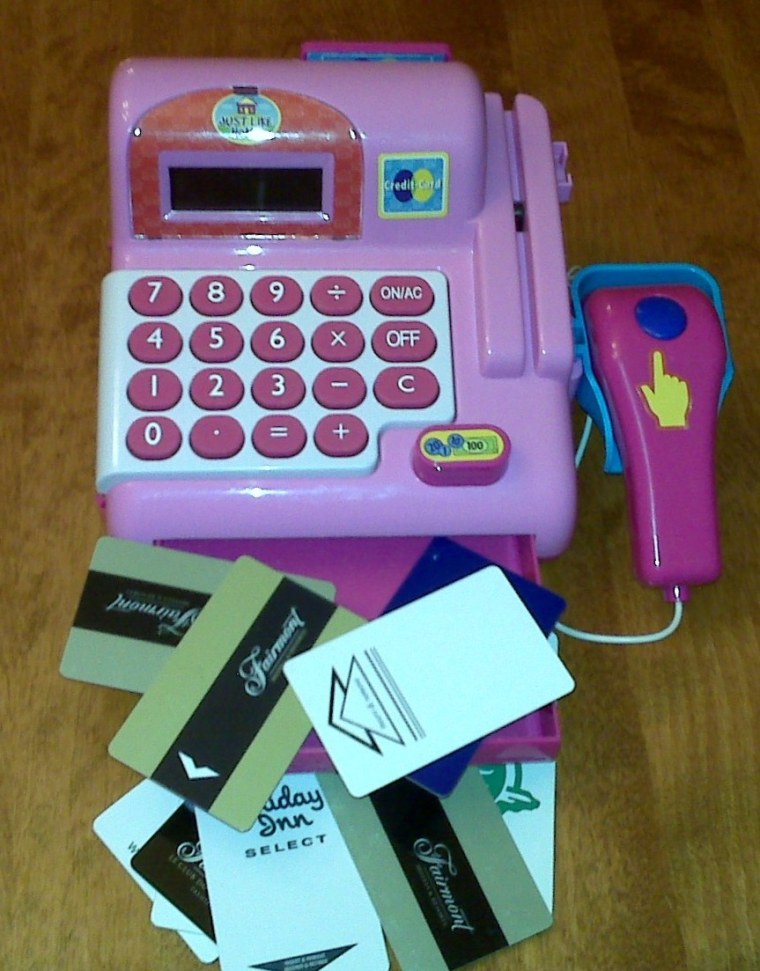From getting stuck-by-suction on an airplane toilet seat to discovering the strange smell in a motel room is a dead body entombed under your box spring, there are some strange and spooky stories circulating in the world of travel.
Many such tales are legends that have at their core “a fear of travel or a mistrust of foreigners,” said Benjamin Radford, managing editor of Skeptical Inquirer magazine.
And while some classics — such as the businessman who meets an alluring woman in a bar and wakes up the next day in a bathtub full of ice and short one kidney — are unfounded, “they have remarkable staying power.”
Not to mention, some of the stories are true.
Which ones? We asked some experts to help us “flush” out the truth.
STUCK ON THE LOO
What they say: It’s possible to get stuck to the seat of an airline toilet if you flush while seated.
The truth: This one has been swirling around for years, fueled by a widely distributed “news” story involving an SAS incident that turned out to be a hoax.
Regardless, we asked Paul DeYoung, a physics professor who runs the online “Ask a Physicist” column at Hope College in Holland, Mich., if it could happen. “While an airplane toilet really does use vacuum to suck the material out,” he doesn’t believe that anyone’s bottom would make a perfect seal and “if there is any gap at all, you don’t get stuck.”
But it’s possible. “Technically, it's not beyond the realm of possibility,” said Boeing Commercial Airplanes spokesperson Tom Brabant. “It has happened in rare cases.”
Bottom line: DeYoung and Brabant encourage travelers to play it safe by making sure to stand up before flushing the toilet in an airplane lavatory. In fact, when Boeing’s new Dreamliner 787 jets start flying, flushing while standing will be your only option: lavatories on these planes have touchless flush mechanisms that automatically put down the lid before flushing the toilet.
FLUSH WITH CAUTION
What they say: On a train, don’t flush the toilet when stopped in a station.
The truth: This one is true, according to Coby Ellison, curator of collections at the Museum of Transportation in St. Louis. At least it used to be. “At one time you were told not to flush the toilet when a train was in a station because toilets on many passenger trains just had a hole in the bottom that let waste go right onto the tracks.” Toilet technology changed in the 1970s when passenger trains started being equipped with retention tanks. “Now, it’s mandatory that there be retention tanks on trains,” Ellison said. “In fact, you can’t even dump gray water on the tracks. Especially in a national park.”
Bottom line: Don’t forget to flush.
TOO MANY BEDMATES
What they say: Guests staying in foul-smelling hotel rooms have discovered dead bodies underneath the bed or hidden inside the bed frame.
The truth? Sadly, it’s true. In March, police in Memphis, Tenn., found the body of a woman missing for two months stuffed inside a motel bed frame. The woman had stayed in the room when she was alive, but it was cleaned and rented out several times after her disappearance.
Snopes.com, the go-to site for getting the skinny on “urban legends, folklore, myths, rumors and misinformation,” has long list of documented incidents like this reaching back to the 1980s.
The bottom line: If you check into a hotel room that smells bad or otherwise makes you uncomfortable, ask to be moved to another room. Or head for another hotel. And consider looking under the bed before you climb into it.
HOT HOTEL KEYS
What they say: Hotels put your credit card number and other personal information on key cards that unlock your room.
The truth? This story is familiar to Mark Fitzgerald, a 20-year veteran in the hospitality industry and now a manager at a Marriott Hotel in Sacramento, Calif. “The only information on their key card is the room number, the name of the clerk who encoded the key and the key’s expiration date,” he said.

Most every other hotel industry representative will tell you the same. “Securing guests’ personal information is extremely important in this industry and we cannot afford to jeopardize that,” said Paul Berry, vice president of hotel operations at ARIA Resort & Casino in Las Vegas.
But Guy Thériault, a marketing specialist for Parks Canada who once served as a sales manager for a hotel chain, isn’t totally convinced. “I have always believed this urban travel legend to be factual and so never return my room key cards. At home my father-in-law cut some up to make guitar picks and my 2 year-old daughter now has a collection of about 100 key cards that she uses to play with in her toy cash register.”
The bottom line: Because many hotels, resorts and cruise lines allow charges to be made to your room with your key card, don’t leave the extra card you’re often issued sitting on the dresser when you’re out of the room. And take the cards with you when you check out. For peace of mind, you can ask the front desk to void the cards while you wait or take them home as a souvenir of your trip.
GERMS ON A PLANE
What they say: It’s easy to get sick on an airplane because germs travel through the re-circulated air.
The truth: “It’s OK to breathe airplane air,” said Anne Banas of SmarterTravel.com. The Web site received so many questions on the topic that it commissioned the help of Dr. Abinash Virk, director of travel and tropical medicine at the Mayo Clinic, for advice. Airplane air, Dr. Virk said, “is more HEPA-filtered than even hospital operating rooms.”
Bottom line? Airplane air may not be the germ-cloud you thought it was, but that doesn’t mean you won’t be exposed to a boatload of germs before you’ve even settled into your seat. Planes are very confined spaces, so if someone seated nearby sneezes, airborne germs can reach you, just as they can on a bus, in a classroom or at the office. Germs can also live on tray tables, armrests, lavatory fixtures and handles on overhead bins. So bring sanitizing gel with you and don’t be shy about wiping things down.
LAVA LEGENDS
What they say: Anyone who removes lava rocks from their rightful place in Hawaii will anger Pele, one of the most revered Hawaiian deities, and experience great misfortune.
The truth: “Through consultations with Hawaiian elders and others, we have learned that the perpetuation of this ‘modern myth’ is culturally insensitive, and for some, downright offensive,” said Mardie Lane, a park ranger at Volcanoes National Park.
Yet some people believe they can “undo” a perceived curse by bringing the rocks back. “I returned some,” said Seattle writer Caitlin Sullivan, “but my relationship broke up anyway. I’ve always figured it was a factor.” Ranger Lane said the park “does not participate in the perpetuation of this myth,” but people mail packages containing lava rocks and other items,” including coral, plastic tiki, wood and plants. All letters accompanying returned items are shredded and thrown out.
Other locations on the Big Island have a different policy. The Waikoloa Beach Marriott Resort & Spa, for example, has a lava rock garden and a monthly Hoaka Ho‘omalu program for returned rocks. “The resort’s cultural staff mails a personal letter to the sender informing him that the lava rocks were returned to the land in a traditional Hawaiian ceremony,” said resort spokesperson Peter Theone.
The bottom line: Whether you choose to believe this myth or not, if you travel to Hawaii and are tempted to take home a rock or something you come across at Hawai`i Volcanoes National Park, it won’t be just Pele’s wrath you’ll have to contend with. “Within a national park, all natural and cultural objects are protected by law against removal, harm and destruction,” Lane warned. Why push your luck?
PARTING SHOT
We can’t tackle all the classic myths, but here’s one more: Writer Paul Abercrombie, who discovered some doozies while researching this topic back in 2005, said he was most surprised by the persistent stories of vacationers developing photos after returning home, and discovering pictures of the housekeeping staff posing with the guest’s toothbrushes in, ahem, unusual places.
“Naturally, I scoff,” said Abercrombie. “Secretly, I sometimes hide my toothbrush when staying in hotels. Just in case.”
Harriet Baskas is a frequent contributor to msnbc.com, authors the and is a columnist for USATODAY.com. You can follow her on .
